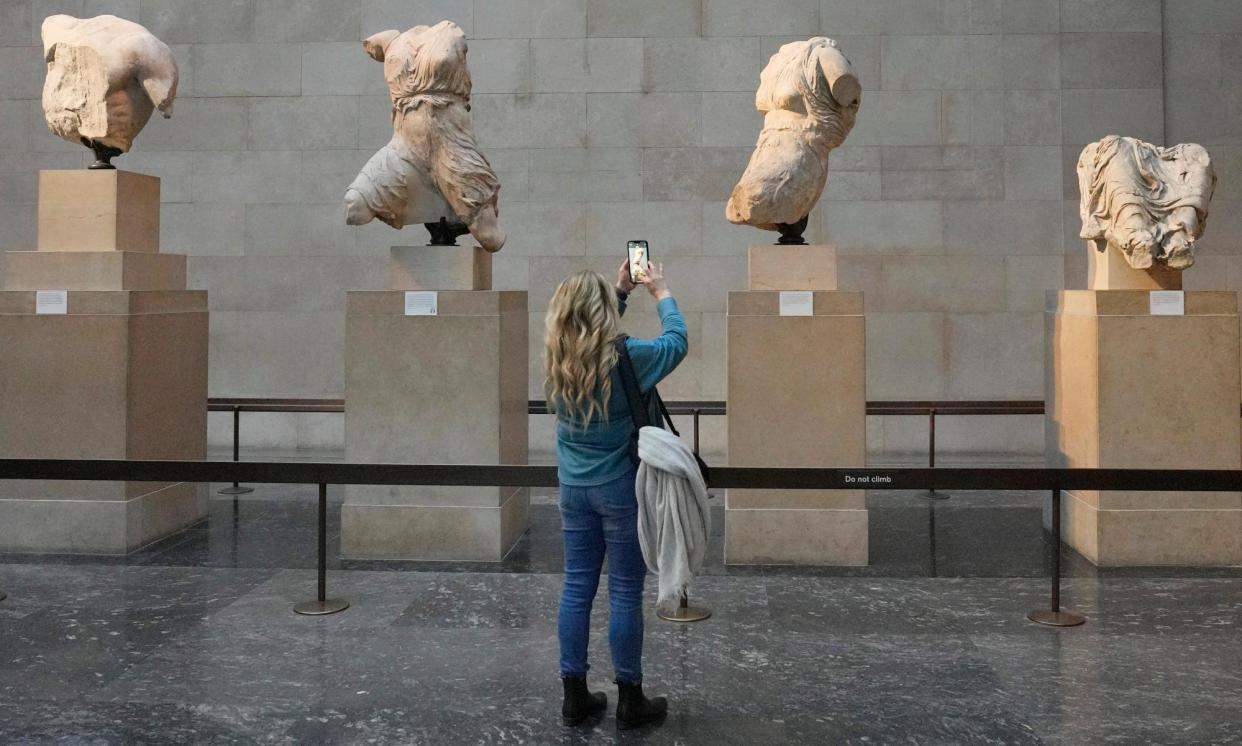Turkey rejects claim Lord Elgin had permission to take Parthenon marbles

Greece has won an unlikely ally in its campaign to retrieve the Parthenon marbles from the British Museum after Turkey publicly rejected the claim that Lord Elgin had received permission from Ottoman authorities to remove antiquities from the Acropolis.
In a move hailed by officials in Athens as a “hugely important” admission, Zeynep Boz, the Turkish culture ministry’s top anti-smuggling official, this week said there was no evidence to prove the peer had been given a permit to strip the fifth-century BC monument of the sculptures.
“Turkey is the country that would have the archived document pertaining to things that were sold legally at that time. Historians have for years searched the Ottoman archives and have not been able to find a ‘firman’ proving that the sale was legal, as it is being claimed,” Boz told the Associated Press.
Boz, who also spoke to Greece’s state broadcaster, ERT, said the only evidence that had been found was an edict written in Italian but that it neither contained the sultan’s signature nor seal, which would have confirmed it had come from the Imperial court.
Officials in Athens told the Guardian that Boz’s revelation was key to demolishing any argument that the ancient carvings were acquired with the acquiescence of the Ottoman authorities.
Elena Korka, the honorary director of antiquities and cultural heritage at the Greek culture ministry, said: “This is a very senior Turkish official who has all the archives, all the services at her disposal and what she is saying, that nothing has been found, that there is no document, is hugely important. “They looked and couldn’t find it and that’s because it never existed.”
Related: Parthenon marbles should return to Athens, says Lord Frost
Crews working at the behest of Elgin began removing statuary from the monumental frieze that once adorned the Parthenon with marble saws and other machinery in 1801 – an endeavour that would take more than a decade. Even then, it was so controversial, his contemporary, Lord Byron, felt compelled to decry it in verse.
But the British Museum, which would go on to buy the marbles from the then bankrupt Scottish diplomat in 1816, has always maintained they were obtained legally.
Boz conceded she had felt obliged to intervene when the UK’s representative in a recent meeting of Unesco’s Intergovernmental Committee for Promoting the Return of Cultural Property in Paris reiterated that the sculptures were bought legally during the Ottoman era.
Korka, who wrote her PhD treatise on the ‘firman’ and spent nearly a decade sifting through archives in England and Istanbul, said the only documents she had found linked to the marbles were related to the shipments of the antiquities that Elgin had made from the port of Piraeus to England.
“There were two documents, written in Osmanli, the language of the day, describing what was in the shipments as ceramics and bits of stone, some with images on them but insignificant to the Ottomans,” she said. “Both stated he had bought the objects in Athens. There was no reference, whatsoever, to the Parthenon marbles and that’s because Elgin never got permission to remove anything from the site.”
Related: Return the Parthenon marbles. The British Museum has too much stuff anyway | Simon Jenkins
Greece has won growing support since launching its campaign 40 years ago to reunite the treasures – seen as the highpoint of classical art – with other relics in Athens. Successive polls have shown the majority of Britons in favour of restoring the antiquities to the country where they were carved.
“The British Museum has always maintained that the treasures were purchased legally; it’s been its central argument,” said Irene Stamatoudi, a professor of cultural heritage law who advises the Greek government on the issue. “It’s now key that the country in possession of the original archives, that might have the document to prove so, says it just doesn’t exist. For us it’s a very positive development.”
Describing the artworks’ restoration to the place where they were designed 2,500 years ago as a “national goal”, the Greek culture minister, Lina Mendoni, said Turkey’s intervention had essentially bolstered Athens’ case.
“There was never any Ottoman firman that allowed Elgin to treat the Parthenon sculptures with the barbarity with which he treated them,” she said. “Turkey has come out and confirmed what the Greek side has argued for years – that there was no firman.”
In a statement the British Museum said it recognised the depth of feeling that, more than two centuries on, the cultural row was prone to evoke.
“The British Museum acknowledges Greece’s strong desire for the return of the Parthenon sculptures to Athens,” a museum spokesperson told Skai TV. “We understand and respect the deep emotions involved.”
• This article was amended on 7 June 2023 to remove text that erroneously stated that the Parthenon marbles were “carved 5,000 years ago”. The sculptures date from the 5th century BC (approximately 2,500 years ago).

 Yahoo News
Yahoo News 
